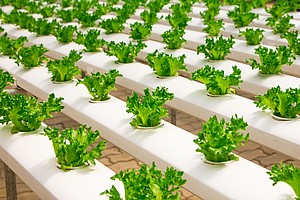2019 FSC Summer School "Transformative Changes in Agriculture and Food Systems"
September 9 – 27, 2019 at SEARCA Headquarters, Los Baños, Laguna, Philippines

Context:
Global population is expected to surpass 9 billion by 2050. But resource constraints(land, water, etc.) and the changing climate is reducing farm productivity. These put muchpressure for transformative changes to agriculture and food systems to meet the secondSustainable Development Goal (SDG 2) of ending hunger, achieving food security andpromoting sustainable agriculture by 2030. This Summer School will consider advances intechnology and discuss three pathways for how changes in food and agriculture systems couldcontribute to meeting SDG 2.
Organizers:
This Summer School is jointly organized by the Southeast Asian Regional Center for Graduate Study and Research in Agriculture (SEARCA) and the Food Security Center (FSC) of the University of Hohenheim in Germany, with funding from the German Federal Ministry for Economic Cooperation and Development (BMZ) through the German Academic Exchange Service (DAAD) in the frame of the Higher Education Excellence in Development Cooperation (EXCEED) program.
Participants:
19 PhD students were accepted and the Food Security Center of the University of Hohenheim (Germany) offered scholarships for applicants from countries in Africa, Asia and Latin America listed in OECD DAC, allowing them to cover costs of airplane tickets, accommodation, meals, and transportation in Costa Rica.
Modules:
Three modules were organized:
- Module 1 (9 – 13 September 2019): Precision Agriculture. This module will discuss farm management that uses information technology applications such as GPS-guided control systems, sensors and remote sensing technology to make production more efficient, profitable and sustainable, while protecting the environment.
- Module 2 (16 – 20 September 2019): Vertical and Urban Farming. The rapid growth of cities and diminishing arable land gave rise to vertical farming as an ingenious method to produce food. While vertical farms save considerable space and soil, it also lowers water requirements and is seen as more sustainable. This module will look into vertical farming innovation systems like the use of hydroponics and plant towers.
- Module 3 (23 – 27 September 2019): Edible Insects - The Future of Food. While people used to eat insects because of its palatability and its established place in local food culture, consuming insects has become more relevant with the increasing demand for protein and for food security and environmental concerns. Insects are highly nutritious with protein, vitamin, fiber, and mineral content. A discourse on the conservation of habitat, rearing of insect species, and processing of insects into food and feed products while looking into the opportunities and challenges in marketing of insect-based food will be discussed in this module.





